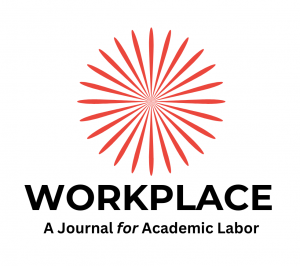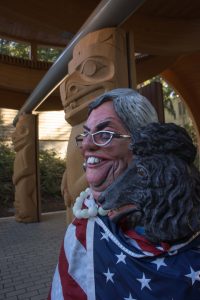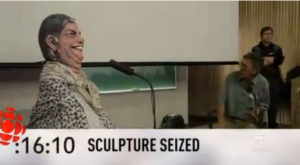Call for Chapters: Precarity, Unions, and Meaningful Work in Adult, Community, and Vocational Education
Submit chapters here https://www.igi-global.com/publish/call-for-papers/submit/6670
Call for Chapters
Proposals Submission Deadline: September 22nd, 2023
Full Chapters Due: December 21, 2023
Submission Date: December 21, 2023
Introduction
“Neoliberalism has had destructive effects on the academic profession. While fulltime academic employment has always been a privilege for a few, the academic precariat has risen as a reserve army of workers with ever shorter, lower paid, hyper-flexible contracts and ever more temporally fragmented and hyper-mobile lives.” (Ivancheva, 2015, p. 39)
According to Standing (2016), starting in the 1980’s, globalisation “has generated a class structure, superimposed on earlier structures, comprising an elite, a salariat, proficians and old ‘core’ working class (proletariat), a precariat, the unemployed and a lumpen-precariat (or “underclass”)” (2014, p. 12) Connecting precariousness with vulnerability Lorey (2011) suggests Precarity is a “category […] that denotes the effects of political, social, and legal compensations for general precariousness” (para. 4). Chinnery explains: “so while we are all vulnerable to whims of fortune, health, violence, and natural disasters, there are some people whose social, economic or political status renders them more vulnerable, more precarious than others” (2015, p. 2). These people, the Precariat, are also susceptible to “the governmental or the structural ways in which precariousness in distributed and managed” (Lorey, 2011, para. 5), what Chinnery (2015) and Lorey (2011) refer to as Precaritisation.
Objective
This edited volume will provide a comprehensive scan of the politics and policies that inform and shape precarity in adult, community, and vocational education. It will explore the in/adequacy of existing theories of adult and workplace education and professional development to capture the experiences of the precariat. It will explore the role of unions and union learning in facilitating and combating precarity experienced by educators. It will showcase first-person narratives of educators who experience precaritisation, each and every day. Finally, it will explore the concept of meaningful work and self-care and describe what meaningful work and self-care look and feel like in this landscape of precarity.
Target Audience
Writers, researchers and practitioners in areas of:
- Adult, community and vocational education
- Employment, precarity and the impact of neoliberalism
- Union education
- Meaningful work
- Self-care
Recommended Topics
This work will be a significant addition to the field addressing politics and policy, theory and practice, first-person narratives, all in relation to the concept and experience of meaningful work and self-care. This work will be a useful resource for adult, community, and vocational educators across a range of contexts.
In no particular order contents will include, but may not be limited to:
• Contexts of adult, community and vocational learning
• Neoliberal and globalised politics and policy as they relate to work, workplace education and professional development
• The role of unions and union learning
• Theories of work, workplace education, and professional development
• Precaritisation, precariousness, precarity
• First-person narratives of experience
• Meaningful work
• Self-care
Editors
Rupert C. Collister, PhD, Ontario Institute for Studies in Education/University of Toronto, University of New Brunswick, & Yorkville University, Canada
Submission Procedure
Researchers and practitioners are invited to submit on or before August 23, 2023, a chapter proposal of 1,000 to 2,000 words clearly explaining the mission and concerns of his or her proposed chapter. Authors will be notified by September 6, 2023 about the status of their proposals and sent chapter guidelines. Full chapters are expected to be submitted by December 21, 2023, and all interested authors must consult the guidelines for manuscript submissions at https://www.igi-global.com/publish/contributor-resources/before-you-write/ prior to submission. All submitted chapters will be reviewed on a double-blind review basis. Contributors may also be requested to serve as reviewers for this project.
Note: There are no submission or acceptance fees for manuscripts submitted to this book publication, Precarity, Unions, and Meaningful Work in Adult, Community, and Vocational Education. All manuscripts are accepted based on a double-blind peer review editorial process.
All proposals should be submitted through the eEditorial Discovery® online submission manager. Submit your proposal here:https://www.igi-global.com/publish/call-for-papers/submit/6670
Publisher
This book is scheduled to be published by IGI Global (formerly Idea Group Inc.), an international academic publisher of the “Information Science Reference” (formerly Idea Group Reference), “Medical Information Science Reference,” “Business Science Reference,” and “Engineering Science Reference” imprints. IGI Global specializes in publishing reference books, scholarly journals, and electronic databases featuring academic research on a variety of innovative topic areas including, but not limited to, education, social science, medicine and healthcare, business and management, information science and technology, engineering, public administration, library and information science, media and communication studies, and environmental science. For additional information regarding the publisher, please visit https://www.igi-global.com. This publication is anticipated to be released in 2024.
Important Dates
September 22nd, 2023: Proposal Submission Deadline
From September 6, 2023: Notification of Acceptance
December 21, 2023: Full Chapter Submission
February 18, 2024: Review Results Returned
March 31, 2024: Final Acceptance Notification
April 14, 2024: Final Chapter Submission
Inquiries
Rupert C. Collister, PhD
Ontario Institute for Studies in Education/University of Toronto, University of New Brunswick, & Yorkville University
rc_collister@hotmail.com


 Follow
Follow

